What Does an Effective Hybrid Work Schedule Look Like?
According to a recent Gartner survey, 82% of leaders are planning to adopt a hybrid work model. This is a wise decision, with 83% of employees reporting a preference for a hybrid work schedule. In fact, many employees have become so accustomed to having a flexible work schedule that they intend to find other jobs if their organizations don’t allow for hybrid work. This has major implications for organizations who want to attract and retain top talent—finding the most effective hybrid work model is top of mind for many leaders.
When it comes to creating an effective hybrid work schedule, there is no one-size-fits-all solution. While some organizations are taking a highly individualized approach and letting employees make their own work-from-home schedules, others are implementing a more leader-led approach. No matter which approach you decide to take, there are lessons from game design that can help you develop a more effective hybrid work model.
Lesson 1: Fair Rules
In games, rules are put in place to keep things fair and create an equal opportunity for everyone to win. If the rules are perceived as unfair or someone cheats, people often quit the game.
The same is true at work. Research shows that employees who perceive their work environments to be unfair are more likely to demonstrate withdrawal behaviors, such as showing up to work late or leaving the company altogether. A remote work schedule poses new challenges related to fairness, with one case study finding that employees who worked entirely from home had a 50% lower promotion rate. In addition, employees who spend more time in the office are often more likely to be assigned important projects and have their efforts recognized by leadership.
Tip: Creating a Fair Hybrid Work Model
- Allow leaders to drive the process of creating hybrid work models for their teams. Avoid giving employees full control of when they come into the office to reduce unfair advantages for groups of people who are able to spend more time in the office (ie: unmarried and / or without children).
Lesson 2: Intentional Design
Did you know that Jenga blocks aren’t all the same size? Game designers intentionally added tiny variations to make the stacking process more challenging and dynamic, resulting in more fun.
While you certainly don’t want to make hybrid work models more challenging, you do want to design them intentionally. One study found that 40% of employees said it was harder to collaborate with their team on calls than face-to-face. One way to be intentional is to design a hybrid work schedule based on what types of tasks need to be completed and schedule in-office time for tasks that require collaboration and creativity.
Tip: Keep a Productive Work From Home Schedule
- Talk to employees about which responsibilities are more difficult when working remotely, and which are easier. From there, you can design an intentional work-from-home schedule that maximizes productivity based on employees’ tasks.
Lesson 3: Flexibility & Engagement
Games keep us engaged because they provide both structure and flexibility. Rules provide structure, and then we have the flexibility to make decisions about how we play within those boundaries.
A recent study by the Society for Human Resources Management (SHRM) revealed that 91% of HR professionals agreed that flexible work arrangements positively impact employee engagement. An effective hybrid or remote work schedule will provide the right balance of structure and flexibility, giving employees some freedom to decide when and from where they work. Flexibility around working hours and location will also give employees the opportunity to better manage their energy as they continue to juggle the responsibilities of home and work.
Tip: Encourage Remote Work Life Balance
- Give employees 1-2 days per week where they can choose their hours and working location, and make their own work-from-home schedule.
Want to experience how applying the principles of Game Design can make you a better leader? Sign up now for PlayTank, a 60-minute play-based workshop that will teach you how to apply the principles of game design to the process of leading change. This virtual event takes place on September 9th at 11 AM PDT, so grab your tickets now!















